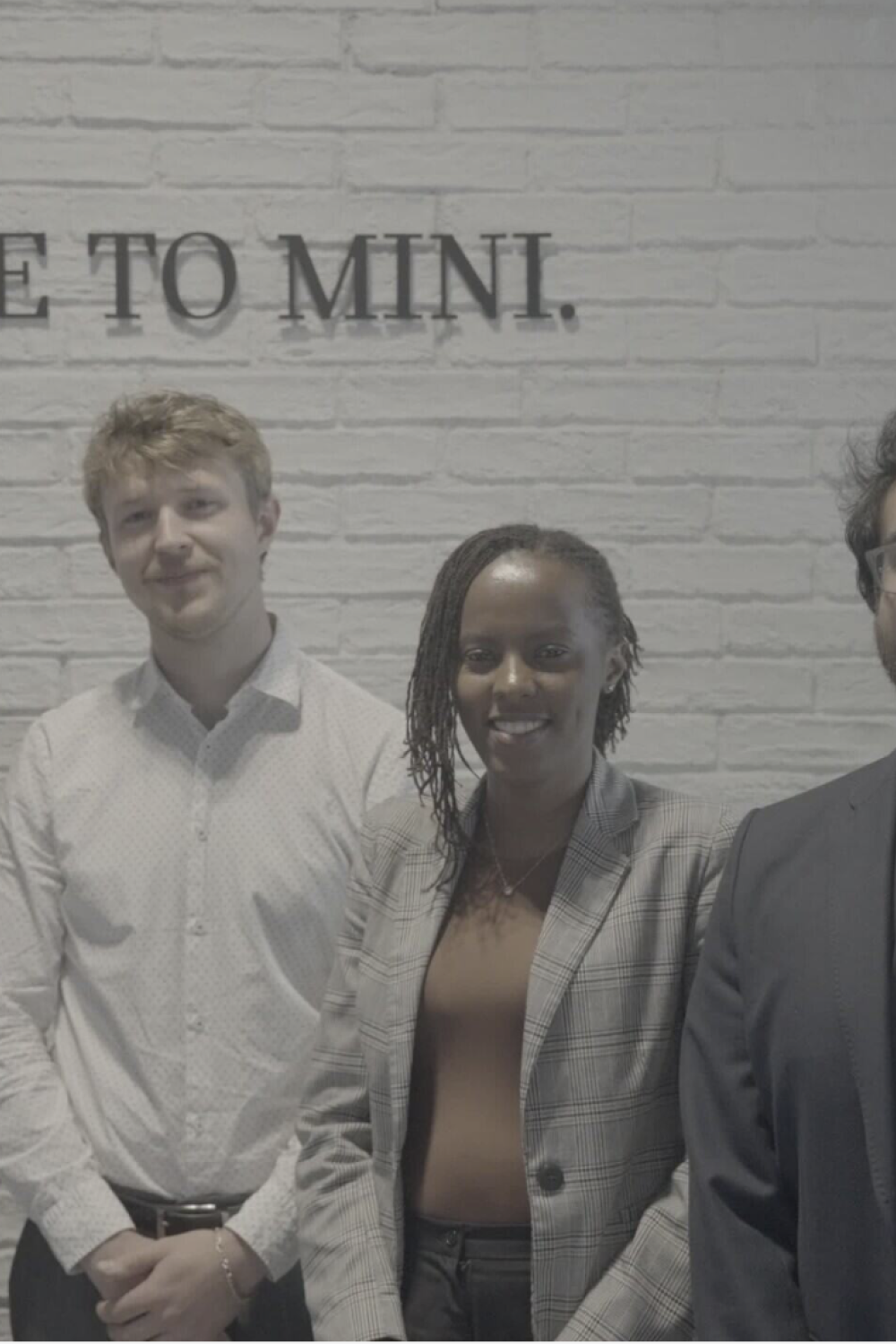Partner: BMW Group MINI Plant Oxford
Programme: BMW Fellowship Programme 2024
Fellows: Miles Judd, Ian Pimenta, Shambhavi Singh, Elizabeth Mugure

Research Aims and Rationale
Every 67 seconds, a new MINI is born at the BMW Group’s MINI Plant in Oxford. From the Press Shop and Sub Assembly in Swindon to the Body in White and Paint Shop in Oxford, ensuring a smooth production process is a logistically complex task that involves many stakeholders. Our collaboration with MINI Plant Oxford aimed to enhance the production steering process using data-driven approaches such as Artificial Intelligence.
Our primary goal was to create a roadmap to improve production steering by leveraging data analytics and smart technologies at Plant Oxford, making the production process more efficient and robust while considering sustainability measures such as water consumption and energy usage in the production schedule. Our research directly aligns with and contributes to Sustainable Development Goals (SDGs) 9 (Industry, Innovation, and Infrastructure) and 12 (Responsible Consumption and Production).

Research Approach
The primary objective was to identify and address bottlenecks in the production steering process using data-driven methodologies. In preparation for the fieldwork, we consulted with Prof. Francesco Fuso Nerini, an honorary research fellow at the Environmental Change Institute in Oxford, whose research includes applying artificial intelligence to achieve climate and sustainable development goals.
Inspired by the potential AI has in this domain, we began our fieldwork by conducting a series of stakeholder interviews to grasp and document the complexity of the production process and identify potential challenges and areas for improvement. We met with experts from each production stage, as well as employees who monitor the environmental aspect of the production process. Secondly, we identified the available data sources and existing AI applications within the company to find potential matches between use cases and existing solutions. Combining our findings, we developed a roadmap towards more data-driven decisions in production steering.

Key Findings and Outputs
While vast amounts of data are collected in the production process, most data is mainly used to conduct descriptive or diagnostic analyses. Using more sophisticated approaches, data could also be used in a predictive manner, forecasting potential maintenance needs and thereby significantly reducing downtime and improving overall productivity.
Additionally, smart scheduling approaches have the potential to balance the complexity of the production steering process in a scenario-based tool, thereby making more informed steering decisions and optimising resource usage. Lastly, due to the use of large curing ovens, the paint shop is the largest source of energy consumption in the plant. As the reduction of CO2 emissions becomes more desirable, smart shift patterns have the potential to reduce emissions in the paint shop by condensing the use of ovens to a shorter, more intense use per week or focusing production on warm days.






